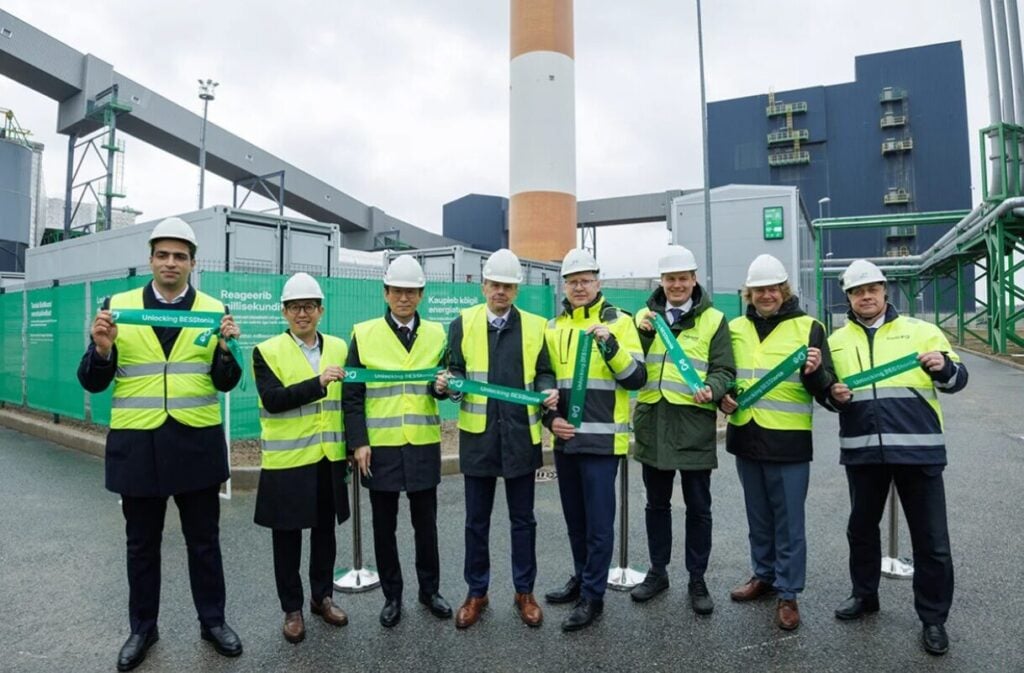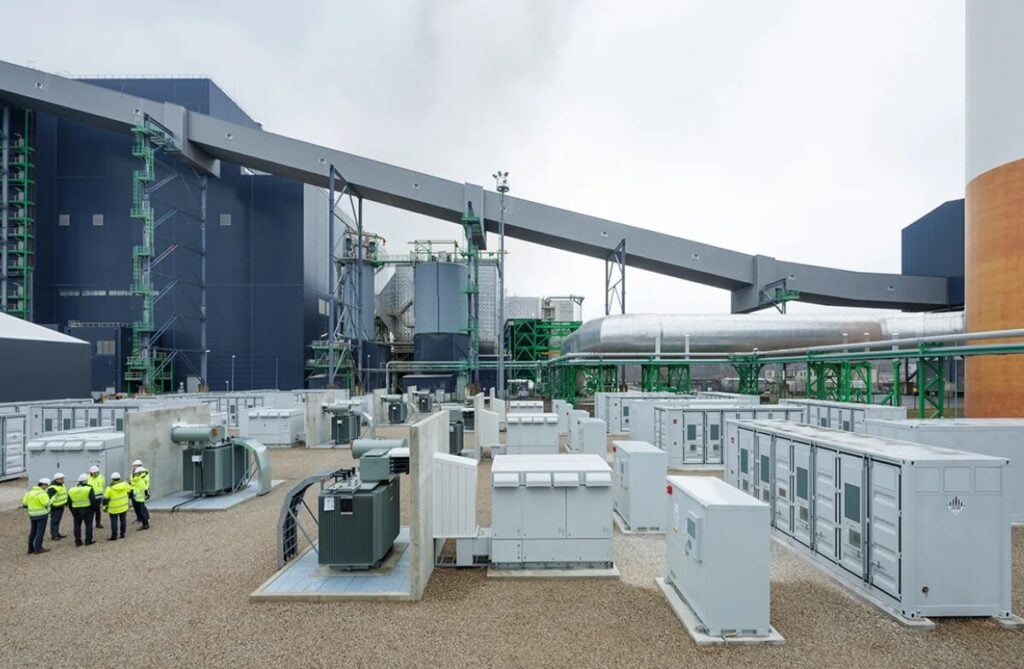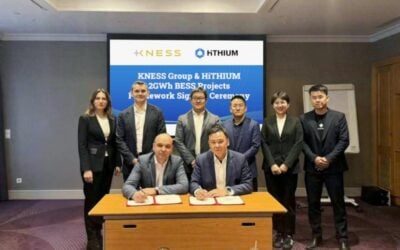
State-owned utility and power generator Eesti Energia has completed and put into commercial operation the first large-scale BESS in Estonia.
Eesti Energia officially inaugurated the 26.5MW/53.1MWh battery energy storage system last week (26 March), located at the Auvere industrial power plant complex in Ida-Virumaa. However, the project has been online since 1 February, in time for the Baltic region’s decoupling from the Russian grid a week later.
Minister of Finance Jürgen Ligi attended the inauguration and commented: “For a democratic nation, having renewable energy storage capacity is crucial for enhancing energy independence. It’s also heartening that this investment incorporates technology from the free world.”
Ligi didn’t make clear what he meant by the latter point. The project was deployed by local system integrator Diotech Group using BESS units from South Korea-headquartered lithium-ion OEM LG Energy Solution (LG ES), while local engineering firm Enefit Solutions did installation and connection work. Eesti’s first procurement failed, with the second successfully completed in January 2024.
Try Premium for just $1
- Full premium access for the first month at only $1
- Converts to an annual rate after 30 days unless cancelled
- Cancel anytime during the trial period
Premium Benefits
- Expert industry analysis and interviews
- Digital access to PV Tech Power journal
- Exclusive event discounts
Or get the full Premium subscription right away
Or continue reading this article for free
Eesti Energia said the BESS will enhance grid stability and reduce costs for consumers by participating in all available electricity markets.
The firm invested €19.6 million (US$21.2 million) in the project, which it discussed with Energy-Storage.news in an interview in August 2024 (Premium access), including why it needed a second procurement.
The company claimed that not only is it the biggest BESS in Estonia, but also in the whole Baltic region. This may be true, though the four 50MW/50MWh BESS projects deployed in Lithuania by Fluence are often considered one project.
Kristjan Kuhi, part of Eesti Energia’s management board, commented: “An additional positive impact will also be felt in the day-ahead electricity market, where the battery will be able to smooth out high price peaks for consumers and create demand in the market during times of surplus production.”
Eesti is also developing a 225MW pumped hydro energy storage (PHES) project.
As mentioned earlier, the Baltic region recently desynchronised from the BRELL network (Belarus, Russia and formerly also Estonia, Lithiuania and Latvia) and synchronised with that of Continental Europe, via a connection in Poland.
The process, over a decade in the making, gave another impetus for the deployment of large-scale BESS, on top of growing renewable penetration. The region has become a hotbed of energy storage activity relative to its size, with deployments from both state-owned companies like Eesti as well as private developers and operators.






